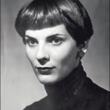My dear I wanted to tell you: a novel
Description
“My Dear I Wanted to Tell You is one of those books that doesn’t leave you, and probably never will.”—Jacqueline Winspear, New York Times bestselling author of the Maisie Dobbs novels
The onrush of World War I irrevocably intertwines the lives of two young couples in Louisa Young’s epic tale of love in the midst of chaos. Perfect for readers of Atonement, The Mapping of Love and Death, and The Guernsey Literary and Potato Peel Society, Young’s moving novel of class struggles, star-crossed romance, and the grim reality of the battlefield is a stunning exploration of the devastating consequences, physical and spiritual, of a world enmeshed in Total War.
More Details
Similar Series From Novelist
Similar Titles From NoveList
Similar Authors From NoveList
Published Reviews
Booklist Review
It's 1907, and 11-year-old Riley Purefoy leaves his working-class home to become the benefactor of Sir Alfred Waveney. He meets Nadine, Sir Alfred's daughter, and a relationship begins that will span both personal and global uncertainties. When the chaos of WWI erupts, Riley enlists in the army, in which he is transformed by the nightmare of war and the resulting physical and emotional scars. As Riley and his commanding officer, Peter Locke, fight for their country in the trenches, their families await their return. When a horrific injury sidelines Riley, he finds himself on a new kind of battlefield, where a lengthy and complicated rehabilitation leaves him uncertain of his and his country's futures. Moving between the battlefields of Europe and the lives of those working and waiting at home, My Dear I Wanted to Tell You is the story of people torn apart literally and figuratively by war. Through it all, Riley Purefoy is an irresistible, deeply memorable character, whose travails bring the Great War and those who suffered from it to life.--Gladstein, Caro. Copyright 2010 Booklist
Publisher's Weekly Review
Singular in quality, if not unique in plot or tone, Young's WWI novel, her adult debut after coauthoring the Lionboy YA trilogy, follows two emblematic couples: Peter and Julia Locke, lovely and well-placed until their relationship disintegrates under the pressure of war and changing conventions, and, more centrally, working class Riley and posh Nadine, who, in a nice bit of symmetry, are hampered before the war by the very upper crustiness that the Lockes embody, but are subsequently more free to love each other and better suited by their modernity and openness to survive. Still, separation and a terrible injury ensure uncertainty and tension. The plot has a certain Atonement feel to it-working-class boy is semiadopted by upper-middle-class family and educated beyond his station, then falls unacceptably in love with their independent-minded daughter and goes to war while she becomes a nurse-but the similarities become increasingly irrelevant as Young's characters come into their own and easily shoulder the burden of escorting readers through an unsensationalized and thoughtful story of English class, world war, and that universal constant-love. (June) (c) Copyright PWxyz, LLC. All rights reserved.
Library Journal Review
Set in London, Paris, and Ypres, Belgium, Young's (Desiring Cairo) latest novel quickly captivates with a tale of two couples, each affected in powerful ways by the horrors of World War I. Riley Purefoy and Nadine Waveney met as children and formed an instant bond. Challenged by class differences and later by distance, their love is put to the test when Riley volunteers for military service. Riley's commanding officer, Peter Locke, is suffering his own tribulations in the trenches, while Peter's naive wife, Julia, undergoes a metamorphosis at home. Perhaps the only person who can keep them all from falling apart is Rose, a toughened yet loyal and compassionate nurse, who acts as a support system and whose character adds a wonderfully rich layer to the story. VERDICT With well-written, mesmerizing prose reminiscent of an earlier era, this novel will be enjoyed by any fan of romance or historical fiction. The level of detail and description is sometimes shocking but always poignant and relevant. [See Prepub Alert, 11/20/10.]-Amy M. Handley, Kent State Univ., Columbus (c) Copyright 2011. Library Journals LLC, a wholly owned subsidiary of Media Source, Inc. No redistribution permitted.
Kirkus Book Review
Innocence, devastation and restored hope cycle through two British couples after the men go to France to fight World War I and the women cope with their absence in very different ways. This is Young's first adult novel to be published in the United States.An epic love story, a grim war chronicle, a class study, a heartwarming tale of overcomingLondon native Young's page-turner hasMasterpiece Classicwritten all over it. Riley Purefoy, a bright, wide-eyed, working class boy, falls for the sweet, privileged and equally adoring Nadine Waveney after stumbling into a childhood job posing for her neighbor, a famous painter. At 18, still a prize model and still in love with Nadine, Riley enlists to flee from an embarrassing encounter with a gay student painter. He proves a good soldier and rises in rank, but immersed in daily traumas, sinks into disillusionment and then worse after a part of his face is shot off. Meanwhile, Riley's battle-scarred commanding officer, Peter Locke, is consumed by alcohol. Back home, while Nadine works as a volunteer nurse for returning soldiers, Peter's wife Julia obsesses over her looks after being rebuffed by him during a short leave. She risks a very different kind of plastic surgery than a devoted doctor performs on Riley to reconstruct his jaw. While following the conventions of Victorian-era fiction (unbeknownst to him, Riley's caregiver is Peter's cousin), Young brings a modern, frill-free sensibility to the material. There's considerably less sentimentality than you usually encounter in such stories. Young, a graceful and light-handed writer, offers apowerful account of war, and her detailed descriptions of the experimental reconstructive surgery add a compelling element to the story. A literate, moving wartime tale in which love triumphs over despair.]] Copyright Kirkus Reviews, used with permission.
Booklist Reviews
It's 1907, and 11-year-old Riley Purefoy leaves his working-class home to become the benefactor of Sir Alfred Waveney. He meets Nadine, Sir Alfred's daughter, and a relationship begins that will span both personal and global uncertainties. When the chaos of WWI erupts, Riley enlists in the army, in which he is transformed by the nightmare of war and the resulting physical and emotional scars. As Riley and his commanding officer, Peter Locke, fight for their country in the trenches, their families await their return. When a horrific injury sidelines Riley, he finds himself on a new kind of battlefield, where a lengthy and complicated rehabilitation leaves him uncertain of his and his country's futures. Moving between the battlefields of Europe and the lives of those working and waiting at home, My Dear I Wanted to Tell You is the story of people torn apart literally and figuratively by war. Through it all, Riley Purefoy is an irresistible, deeply memorable character, whose travails bring the Great War and those who suffered from it to life. Copyright 2011 Booklist Reviews.
Library Journal Reviews
As a boy, working-class Peter falls for classy and artistic Nadine. Years later, love bursts forth, but then so does World War I, and Peter enlists. His commanding officer ends up so emotionally damaged by battle that his wife hardly recognizes him; will the same thing happen to Peter? Coauthor of the best-selling "Lionboy" trilogy, Young here ventures to write her first adult novel. Interesting detail: she grew up in the house where Peter Pan was written. Maybe some magic rubbed off?
[Page 64]. (c) Copyright 2010. Library Journals LLC, a wholly owned subsidiary of Media Source, Inc. No redistribution permitted.Library Journal Reviews
Set in London, Paris, and Ypres, Belgium, Young's (Desiring Cairo) latest novel quickly captivates with a tale of two couples, each affected in powerful ways by the horrors of World War I. Riley Purefoy and Nadine Waveney met as children and formed an instant bond. Challenged by class differences and later by distance, their love is put to the test when Riley volunteers for military service. Riley's commanding officer, Peter Locke, is suffering his own tribulations in the trenches, while Peter's naive wife, Julia, undergoes a metamorphosis at home. Perhaps the only person who can keep them all from falling apart is Rose, a toughened yet loyal and compassionate nurse, who acts as a support system and whose character adds a wonderfully rich layer to the story. VERDICT With well-written, mesmerizing prose reminiscent of an earlier era, this novel will be enjoyed by any fan of romance or historical fiction. The level of detail and description is sometimes shocking but always poignant and relevant. [See Prepub Alert, 11/20/10.]—Amy M. Handley, Kent State Univ., Columbus
[Page 112]. (c) Copyright 2010. Library Journals LLC, a wholly owned subsidiary of Media Source, Inc. No redistribution permitted.Publishers Weekly Reviews
Singular in quality, if not unique in plot or tone, Young's WWI novel, her adult debut after coauthoring the Lionboy YA trilogy, follows two emblematic couples: Peter and Julia Locke, lovely and well-placed until their relationship disintegrates under the pressure of war and changing conventions, and, more centrally, working class Riley and posh Nadine, who, in a nice bit of symmetry, are hampered before the war by the very upper crustiness that the Lockes embody, but are subsequently more free to love each other and better suited by their modernity and openness to survive. Still, separation and a terrible injury ensure uncertainty and tension. The plot has a certain Atonement feel to it—working-class boy is semiadopted by upper-middle-class family and educated beyond his station, then falls unacceptably in love with their independent-minded daughter and goes to war while she becomes a nurse—but the similarities become increasingly irrelevant as Young's characters come into their own and easily shoulder the burden of escorting readers through an unsensationalized and thoughtful story of English class, world war, and that universal constant—love. (June)
[Page ]. Copyright 2010 PWxyz LLC
































